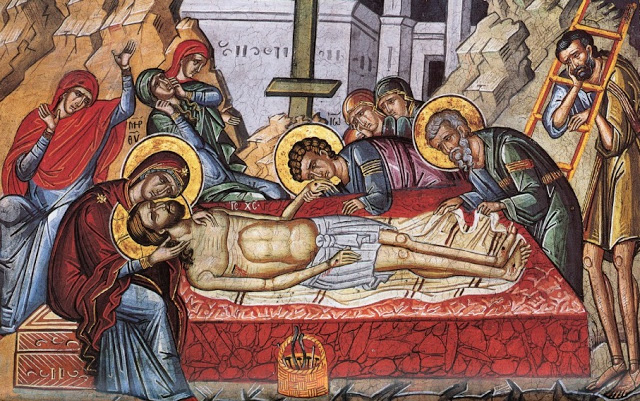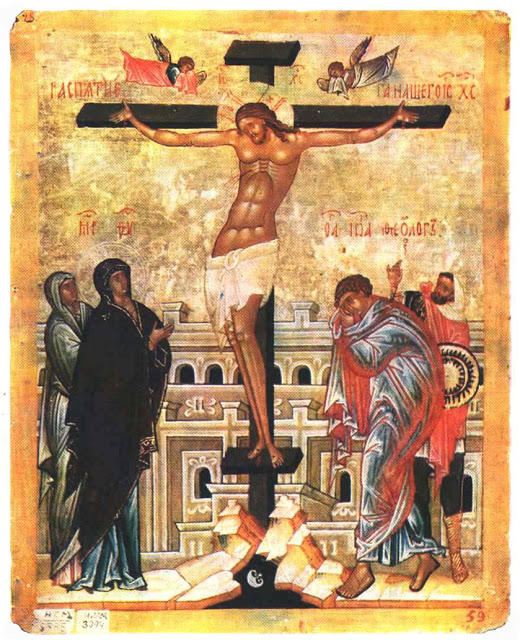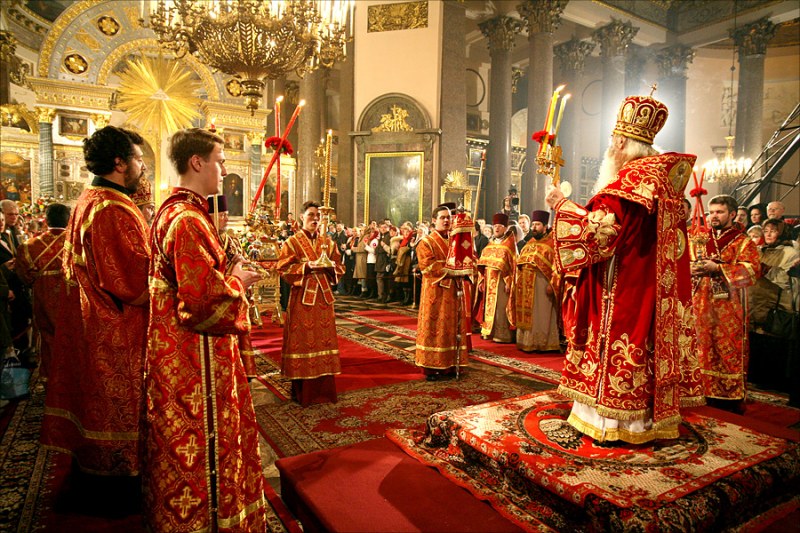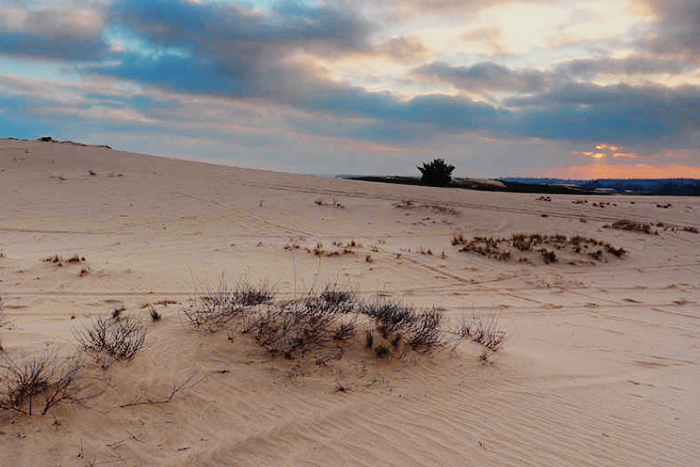 Prologue
PrologueWhatsoever you take in hand, remember the end and you shall never do amiss. Sir. 7:36
When we wish to emphasize the importance of something, we say that it is a matter of life and death. A matter of primary importance for those of us who believe in heaven and hell – perhaps even the most important – is our departure from the world and the life after death. After we are born, the only thing we can take for granted is that at some point we will die. In Holy Scripture, death is
called the way of all the earth (3 Kingd. 2:2) because it is the road which we will all travel. All of us, therefore, must contemplate our death and prepare to encounter it. Christ himself stresses this, saying: Therefore, be ready, for it is at an hour which you do not expect that the Son of Man will come. (Matt. 24:44)
called the way of all the earth (3 Kingd. 2:2) because it is the road which we will all travel. All of us, therefore, must contemplate our death and prepare to encounter it. Christ himself stresses this, saying: Therefore, be ready, for it is at an hour which you do not expect that the Son of Man will come. (Matt. 24:44)
The saints of the Church stress that the remembrance of death is a great and enduring support in our spiritual struggle, both by halting our slide into sin and as a God-given strength in the exercise of virtue. Since we completely forget about death due to the cares and distractions of daily life, sometimes willfully, God reminds us of it in different ways, most poignantly when a family member or friend departs this life for the next.
In the present work we will try to see what it means for a lay person to be mindful of the time of death and how this mindfulness benefits the spiritual life. Everything we say is based on the experiences of the holy Fathers [of the Church] who lived in expectation both of their eventual departure from this life and of the coming of the Lord.
The Mystery of Death
Death is a stage that every person born into this world will inevitably go through. After traversing it, however, a wall of silence divides the living and the dead. And in spite of what some have written concerning death, it remains a great unknown and an unapproachable mystery.
One of the hymns sung at the funeral service says: I grieve and lament when I contemplate death, and see the beauty fashioned for us in God’s image lying in the graves, without form, without glory, without shape. O the wonder! What is this mystery which has happened to us? How have we been handed over to corruption, and yoked with death?
We will attempt to provide an answer to these fundamental questions posed by the hymnographer.
***
Holy Scripture teaches us that, For God made not death: neither has He pleasure in the destruction of the living. For He created all things, that they might have their being… (Wis. 1: 13-14)
When God commanded Adam and Eve to abstain from the fruit of the tree of knowledge, he also said: But in the day you eat of it, you shall surely die. (Gen. 2:17) Though aware of these words, Adam broke God’s commandment. This had tragic consequences for himself and for his descendants: death came into the world as the fruit of sin. Therefore, [even] as sin entered into the world through one man, and death through sin, death passed to everyone, because [of which] all sinned. (Rom. 5: 12)
Adam died twice because of his disobedience. He died spiritually at the moment of sinning, when he lost the communion with God which he had previously enjoyed. Then he died physically many years later, also on account of his sin. As a result, the entire human race came under the dominion of this twofold death.
According to the holy Fathers, bodily death was a medication dispensed by divine benevolence for mankind “so that evil should not become immortal.” “God allowed death and sorrow to take effect immediately after Adam and Eve had sinned, not for their punishment, but as a medicine for their illness.” However, it was man’s spiritual death – his separation from God – that was his greatest affliction. The incarnation, crucifixion, burial and resurrection of the Word of God were necessary in order to give life to man, that is, to restore him to communion with God. St. Gregory the Theologian says, “It was necessary for God to become flesh and die so that we might live.”

Confronting Death
How, though, does man cope with death? Is it right that the mere mention of the word ‘death’ makes us change the subject of a conversation and causes feelings of aversion and displeasure? St. John Klimakos explains to us that the “fear of death is a natural trait in man, that derives from the disobedience of Adam. The terror of death, however, proves that there are unrepented sins.” Death is indeed fearful for the man who lives unaware of his sins and without repentance, as the Psalmist’s words attest: The death of sinners is evil (Ps. 33:21).
For the godly man, though, death is a transition to another life. It is a going forth from this world to take up residence in the world of God: “There is, therefore, no death for your servants, Lord, when we go out from the body and come to you, O God, but a translation from sorrow ful things to better and more desirable, and rest and joy.” St. John Chrysostom says: “What is death? It is a brief journey, a sleep lasting longer than usual. So if you fear death, you fear sleep!” “We fear death,” continues the Saint, “because we live carelessly and this lies heavy on our conscience.” According to St. Isaak, “The fear of death distresses a man with a guilty conscience, but the man with a good witness within himself longs for death as for life.” The true Christian, according to Elder Paisios, is both glad to live and glad to die!
The death of the saints is their translation to the true and lasting homeland where they will live forever with Christ, the Panagia, the Angels and all the saints.
“They said about Abba Sisoes how, when he was on his deathbed with the Fathers sitting around him, his face shone like the sun and he said to them: ‘Look, Abba Anthony has arrived!’ And after a little while, he resumed: ‘Look, the choir of the Prophets has arrived!’ And again, his face shone exceedingly, and he said: ‘Look, the choir of the Apostles has arrived!’ His face shone even more brightly and he appeared to be talking to someone. The Fathers begged him to tell them with whom he was speaking.
The Saint answered, ‘Look, the Angels have come to take me, and I asked them to leave me a little longer so that I can repent.’ ‘Father,’ the elders said to him, ‘you have no need of repentance.’ ‘Truly,’ he answered them, ‘I do not know if I have even begun.’
From this they understood that he was perfected. Suddenly his face became radiant as the sun, and they were all afraid. ‘Did you see?’ he asked them. ‘The Lord came saying: “Bring the vessel of the desert to me.”’ And immediately he gave up his spirit, while at the same time there was something like a flash of lightning and the place was filled with a sweet scent.”
The way a person privately confronts death is reflected in the public celebration of the funeral service. The villages of Greece today still retain the old customs: As soon as someone dies the bells are solemnly rung to inform everyone that someone has fallen asleep; then people make their way to the house to grieve with the relatives. The body remains in the house all night and Psalms are read over it. The next day it is taken to the Church for the funeral service and the last kiss.
Contrast this with what happens in urban centers today: As soon as someone dies the body is immediately transferred to cold storage – allegedly for reasons of public health! Many people keep the coffin closed or completely cover it with flowers! Modern man is very fearful of anything that might remind him of death.
St. Kosmas Aitolos asked some Christians, during a homily, how long they kept the deceased before burying him, and they responded, “Two or three hours.” He replied, “From this day forward, do not immediately bury the body, but watch over it for 24 hours. Have everyone gather around it, including the children, and consider it well, because death is the best teacher.”
Let us consider how someone can be taught by death.





I really learned alot from this. Thank you.